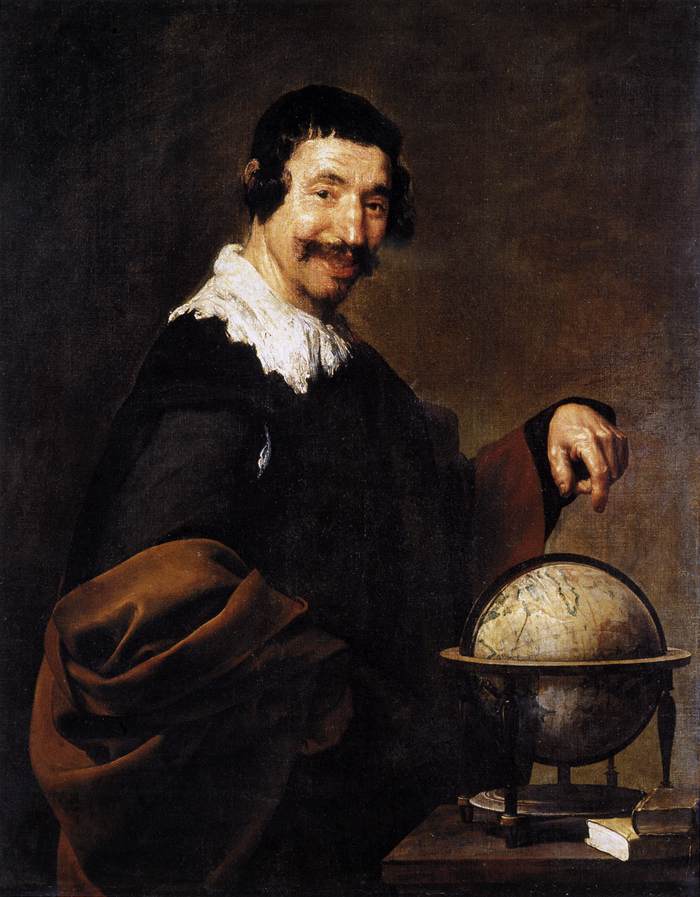Description
The painting "Democritus" by renowned artist Diego Rodríguez De Silva y Velázquez is a fascinating work that deserves to be admired and analyzed in detail. The artistic style used by Velázquez in this work is Baroque, characterized by its realism and detailed representation of objects and figures.
The composition of the painting is remarkably balanced and harmonious. At the center of the work is Democritus, the Greek philosopher, represented in full length and standing. Her figure stands out for her upright and serene posture, with a deep and reflective gaze. Around him, you can see various objects that symbolize his wisdom and knowledge, such as books, scientific instruments and a globe.
The use of color in this painting is subtle but effective. Velázquez uses a palette of warm, earthy tones, with soft, delicate brushstrokes that bring a sense of serenity and calm to his work. Colors blend harmoniously, creating a calm and contemplative atmosphere.
The history of the painting "Democritus" dates back to the 17th century, when Velázquez was the chamber painter to King Philip IV of Spain. It is believed that this work was commissioned by the monarch to decorate one of the rooms of his royal palace. The painting reflects the interest of the time in philosophy and knowledge, and is considered a tribute to the thought and wisdom of Democritus.
Despite its recognition and popularity, there are little-known aspects of this painting. For example, it is believed that Velázquez used a mirror to portray himself in the work, depicting himself as one of the characters surrounding Democritus. This technique, known as "hidden self-portrait," was common in Velázquez's work and allowed him to leave his personal mark on his paintings.
In summary, Velázquez's painting "Democritus" is a masterpiece that stands out for its baroque artistic style, its balanced composition, the subtle use of color and its homage to the Greek philosopher. Through this work, Velázquez invites us to reflect on the search for knowledge and the importance of wisdom in our lives.

